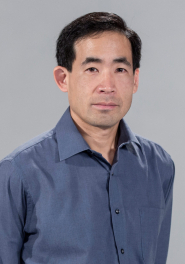


| Date: | 10 Dec 2018 |
| Time: | 12:30 pm - 2:00 pm |
| Venue: |
HKUST Business School Central 15/F, Hong Kong Club Building, 3A Chater Road, Central, Hong Kong |
| Enquires: |
Ms Queenie Chu 2358 8365 / sfl@ust.hk |


by Prof. Jack C. P. CHENG
Smart cities require smart ways to operate and maintain their buildings and infrastructure. Smart facilities management makes use of data-driven replications of physical processes (the ‘digital twin’) coupled with Internet of Things technologies. Building information modeling, increasingly used in the global construction industry and now mandated for major public projects, provides a basis for creating such a digital twin to support Hong Kong as a smart city. Prof. Cheng will use examples of these related applications to outline the smart city concept, noting the opportunities and challenges likely to arise.
Robotic Perception – from Autonomous Driving to Autonomous Logistics
by Prof. Ming LIU
Prof. Liu will outline recent developments in robotic perception technologies, which combine sound and visual data to mimic human perception in areas such as autonomous driving and delivery robots. His team’s mission is to create intelligent systems that can operate autonomously in complex and diverse environments, using multiple approaches. This includes novel methods and tools for human-robot interaction, cognition, knowledge abstraction, mapping, learning, representation, planning and execution.
Developing Tactile Panels for Visually Impaired People
by Prof. Hongyu YU
Visually impaired people face great challenges in learning Science, Technology, Engineering and Mathematics (STEM) subjects, owing to their inability to access visual content. Prof Yu’s team are therefore developing novel tools to produce images with tactile 3D profiles, which allow the visually impaired to sense the information according to surface height variation. This interdisciplinary project, integrating research and development in various areas of education and engineering, offers a fine example of how smart living developments can help create a more inclusive society.





